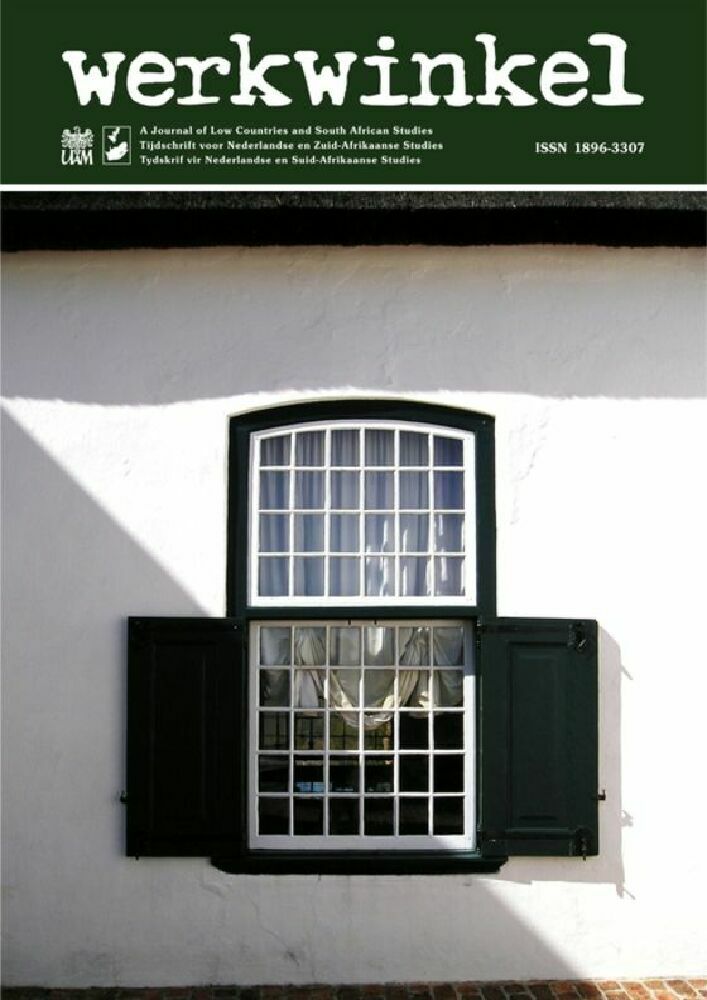Abstract
The article traces the lasting alienation of Olga Kirsch (1927-1994), a Jewish-born South African poet, as represented in her seven volumes of Afrikaans poetry published between 1944 and 1983. Growing up in a devoutly Christian, Afrikaans-speaking rural community, she found herself an outsider. The conditions at home brought little comfort, while the awareness of the racial discrimination which permeated society further contributed to her isolation. Seeking for a heimat, she emigrated to Israel at the age of 24. Reading her poetry, it becomes clear that here, too, she remained a stranger, continuing to write and publish in Afrikaans.
References
Carver, Raymond. 1996. All of Us. The collected poems. New York: Vintage Books.
Hugo, Daniel. 1994. Olga Kirsch: Digteres van die Son. Johannesburg: Afrikaanse Radiodiens van die SAUK/SABC.
Kirsch, Olga. 1944. Die soeklig. Pretoria: J.L. van Schaik
Kirsch, Olga. 1948. Mure van die Hart. Johannesburg: APB.
Kirsch, Olga. 1946. “Naweek op die Vlakte.” Ons eie boek. 12 (1), Maart: 2-3.
Kirsch, Olga. 1972. Negentien gedigte. Kaapstad: Human & Rousseau.
Kirsch, Olga. 1976. Geil gebied. Kaapstad: Human & Rousseau.
Kirsch, Olga. 1978. Oorwinteraars in die vreemde. Kaapstad: Human & Rousseau.
Kirsch, Olga. 1982. Afskeide. Kaapstad: Human & Rousseau.
Kirsch, Olga. 1983a. Ruie tuin. Kaapstad: Human & Rousseau.
Kirsch, Olga. 1983b. “Huwelijk.” Groot verseboek. D.J. Opperman. Kaapstad: Tafelberg. 377.
Minnaar, W.F.T. 2012. “’n Herwaardering van Olga Kirsch se oeuvre: Identiteit, moederskap en ballingskap aan die hand van die psigoanalitiese teorieë van Sigmund Freud, Jacques Lacan en Julia Kristeva.” Diss. Universiteit van Kaapstad.
Muller, H.C.T. 1984. “Nie haar beste poësie nie.” Buurman. Februarie: 35-36.
Opperman, D. J. 1983. Groot verseboek. Kaapstad: Tafelberg.
License
Copyright (c) 2014 Eben Venter

This work is licensed under a Creative Commons Attribution-NonCommercial-NoDerivatives 3.0 Unported License.

